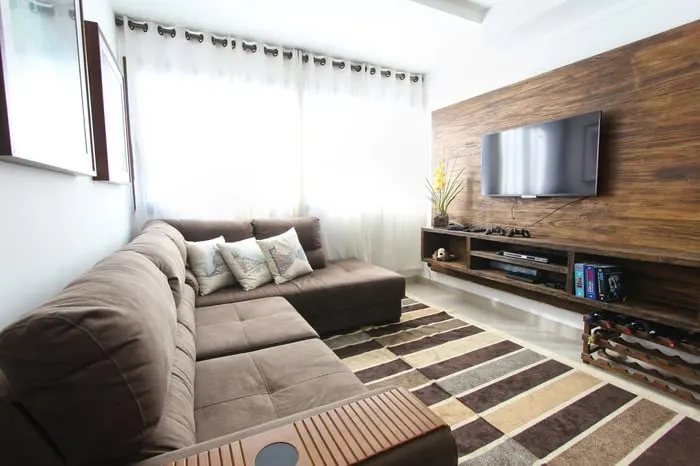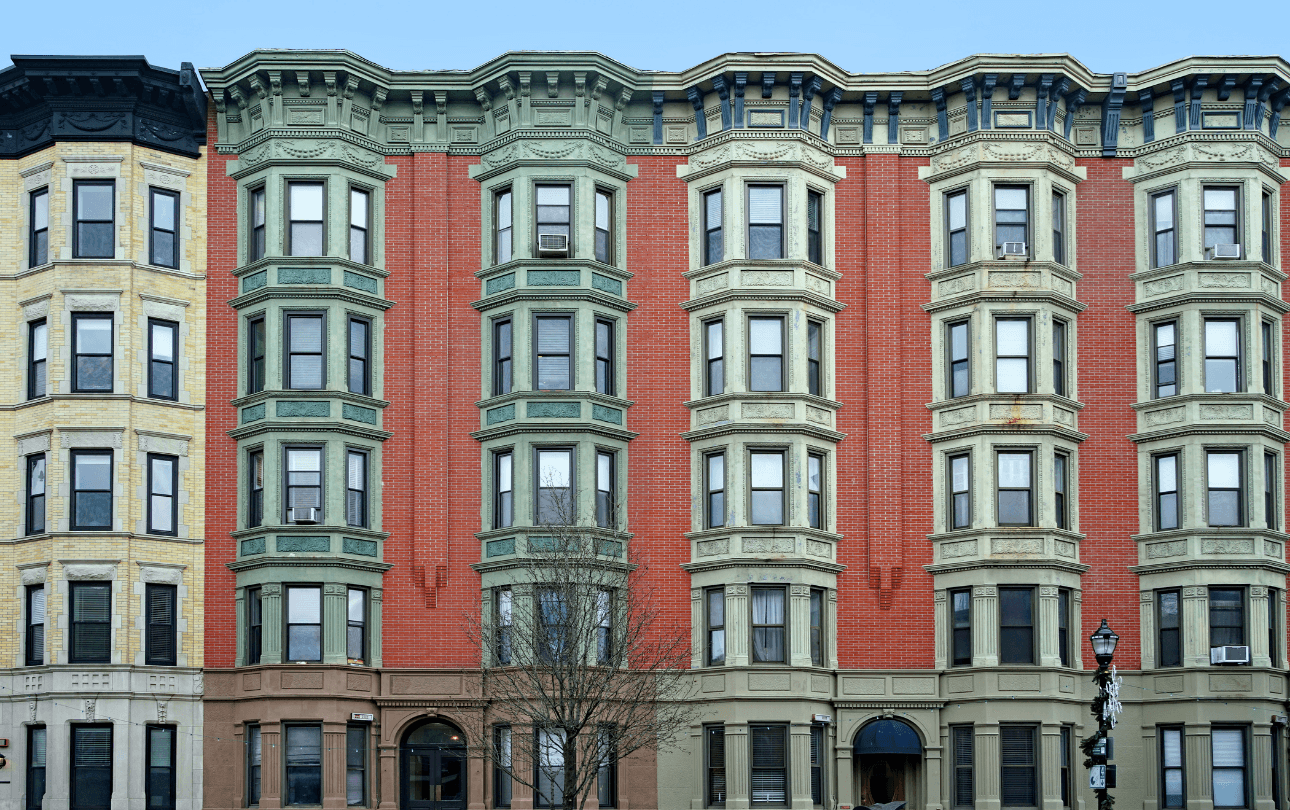If you're torn between renting a condo or renting an apartment, you're not the only one! In your search, you’ll find multiple listings, each offering a particular architectural format and lifestyle possibilities. But, like anything, you have to make a choice. It's time to weigh up renting a condo vs. an apartment, so you can settle into your perfect pad in no time.
As you balance the pros and cons of each option, you might wonder: Why is one more expensive than the other? And what is a condo exactly? Before you go crazy trying to figure it all out, read this guide on the pros and cons of renting a condo vs an apartment. Then, choose the best one for you.
What’s a condo?
A condo or a condominium is defined as a living space closely resembling an apartment. The major difference is that a condo is an independently sold piece of real estate. Usually, condo owners share amenities such as parking lots, pools and gyms. Although, it is possible to buy a detached condo.
What’s an apartment?
An apartment is a general term for a separate residence within a larger building. Apartments in NYC can either be individually owned condominium units, co-op apartments, or one unit of a rental building that is entirely owned by one landlord.
The difference between renting a condo vs. an apartment
1. Ownership
The difference in ownership between renting a condo versus an apartment is the most significant distinction. It's something covered in the rental listing, and will impact who you should contact if something goes wrong.
Apartments: An entire apartment complex typically has one owner. You'll either interact with them or you'll work with a management company. They handle the tenants for the entire building.
Condos: Condominium units differ in ownership from apartments because each condo typically has a unique owner.
2. Maintenance
The biggest factor with maintenance while renting a condo versus an apartment is how quickly your issue gets handled. Sometimes - though not always - getting a resolution can take longer in a condo.
Apartments: In case an apartment repair goes beyond what you're able to handle, the first step is contacting your property owner or management company. They're usually quick to respond, especially if it's an issue that's also impacting other units in the building.
Condos: In a condo, maintenance is the responsibility of each owner. If they're on vacation or tied up in some other way, you might have to wait for a response about getting that leak fixed.
3. Fees
You can't sign a new lease without paying for some fees along the way. There’s a difference in the amount you have to pay while renting a condo versus an apartment. In an apartment, fees are pretty standard, but that's not always the case for condo rentals.
Apartments: Typical apartment fees include the first and last month's rent and a security deposit. If you're bringing a pet into your new home, a pet fee may also be added to this initial payment. The other fee you might not think about is the application fee. This comes before you get to the lease signing. According to Kaycee Miller from Rentec Direct, the application fee covers a few essential services including:
Running credit, criminal, and eviction reports establishing that you're a good renter
The administrative costs associated with verifying income, employment, rental history, and references
Condos: Condo fees are up to each unit's owner, meaning they can vary. Be sure to ask about any fees upfront.
4. Units
Apartments: Units within a single apartment building will often have the same design. Your one-bed will look very similar to your neighbor's, as will your studio or two-bed unit. The only thing impacting which apartments are "better" are the direction they face and the floor they sit on.
Condos: Condos, on the other hand, often vary on the inside from unit to unit since owner preference will influence appearance. Flooring choices, countertop materials, and even cabinet built-ins will change between units. You might want to spend more time during inspections so you can find an interior you love!
5. Amenities

Apartments: A few of the most common amenities in apartments are free parking, on-site laundry, pools, gyms, and community rooms. Some apartment buildings may not have any amenities at all, and are generally on the market at a lower price.
Condos: A condo building will most likely have all the apartment amenities listed above, but will often throw in a few more for good measure. You might even get to live amongst a park, playground, car wash, and a pet area with pet services.
6. Rental policies
Apartments: A property manager handles the administration, including rental policies, for renters in an apartment building. They also handle any complaints you might have, from noisy neighbors to broken appliances.
Condos: HOA guidelines establish the rules for common areas in a condo, which are quite similar to those in an apartment building. You will find specifics in the Condo Association Covenants, Conditions, and Restrictions or "CC&Rs". Make sure you have a copy when you move in since you're expected to follow these even though you're only a renter.
Pros and Cons of Renting a Condo
Pros of renting a condo

1. Potential financial investment
If you decide that you want to own a piece of real estate, you may have a chance if the owner of your unit decides to sell.
2. Flexibility to customize
Being able to remodel your condo with new appliances, windows and rooms is an advantage you don’t get with apartments.
3. Modern finishes
Since the owner has a vested interest in the condo, it is more probable that the unit will have updated appliances as well as high-end designs and finishes. These finishes include hardwood floors, granite countertops, stainless steel appliances, backsplash in the kitchen, etc.
Cons of renting a condo
1. HOA fees
The average monthly HOA fees in NYC are approximately $1,500 a month in addition to rent. This is usually why condos are considered more expensive than renting an apartment, especially in New York.
2. Maintenance
In case a repair goes beyond what you're able to handle, the response time relies heavily on the owner’s schedule. You may be held responsible for extra maintenance charges when an issue does pop up.
3. Lack of stability
Since the landlord is the owner, they can decide to sell their unit at any time, leaving you scrambling to find your next home.
4. Rules
Generally, the residential rules are set by the HOA, such as trash removal and picking up after your pet.
Pros and Cons of renting an apartment in NYC
Pros of renting an apartment
1. Stability
If you are looking for stability, you may prefer an apartment. They usually can't be purchased by an independent buyer, so you don't have to worry about the owner selling.
2. Flexible lease terms
Only apartments will let you find yearly or month-to-month leases to suit your circumstances.
Related: Understanding Lease Terminologies: A Lease Guide for Students
3. Maintenance
There is usually a property manager or management company onsite to handle any maintenance issues. This makes it easy and convenient in case there is an emergency, leak, tripped breaker, etc.
4. Easy payments
Most apartments have a website where monthly payments can easily be made without having to send a check. When you rent an apartment, you just have to pay a security deposit and the first month’s rent upfront.
5. Pets

While many landlords don't allow pets in their apartments, the New York City pet law includes an exception. The landlord can decide to lax the no-pet law, even if there is a no-pet rule in your building. This law is actually in place to help protect the tenant in case their landlord decides to evict them over a non-related issue but blames it on them owning a pet.
Cons of renting an apartment
1. Rent can increase
You may encounter rises in rent periodically. This adds a bit of unpredictability to your expenses from time to time.
Related: 12 Questions To Ask Your Landlord Before Signing A Lease
2. Lack of freedom and creativity
Most apartments have restrictions on heavy remodeling.
The property management company of the building can enforce rules whenever they feel it’s necessary, which applies to all of the tenants in all of the units.
3. Size
Apartments are usually smaller than condos. In NYC, the average size of an apartment is approximately 850 square feet.
4. Utilities
Utilities aren’t included with monthly rent payments, and monthly charges in NYC are usually around $100-$150.
To summarize, the choice between renting a condo versus an apartment depends on the tenant renting and what their expectations, wants, and needs are.
Apartments have all the convenience and professionalism of property management onsite to handle any questions, issues, rent payments, etc. They are the best choice if you find that you’re likely to move around from city to city, and you want that peace of mind in each spot.
On the other hand, those looking for a more laid-back arrangement, more options to decorate, and a more personal experience with the landlord, may find living in a condominium to be the best choice for them.



